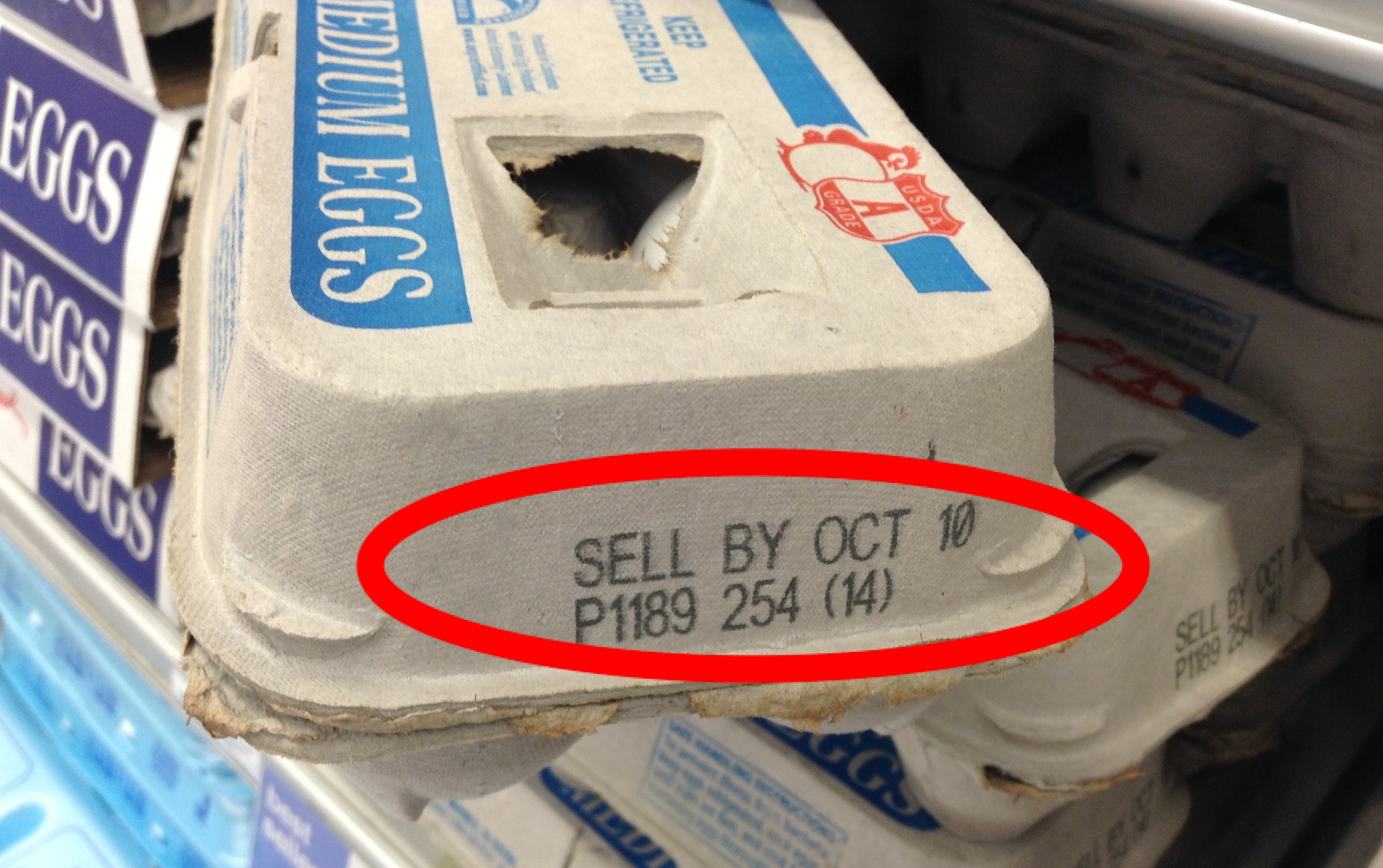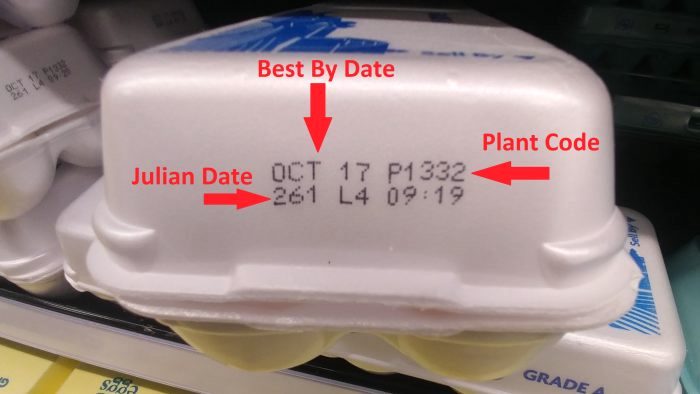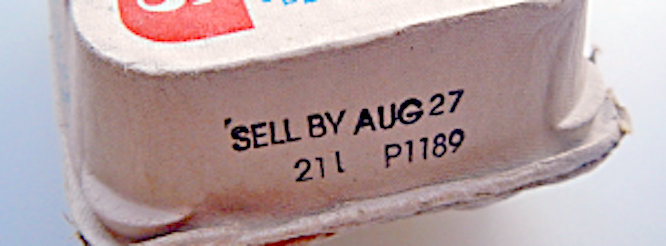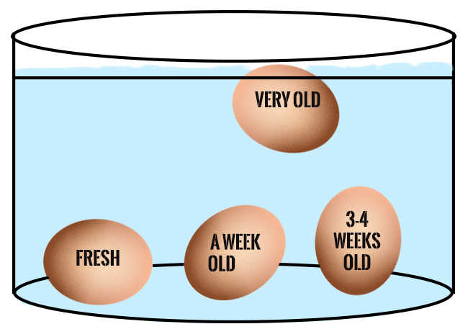
Consumers are getting savvier and health-conscious when shopping for food. When it comes to eggs, we particularly look for the buzz word, “farm fresh” on the label. Unfortunately, at the time of their purchase, eggs are far from being considered fresh! Eggs are allowed to sit 4 weeks before they are packaged and many farmers stretch that out even longer! Once these eggs are finally placed into cartons, they get a "sell-by" date, which can be up to 45 days after they're packaged. We are told it's safe to consume eggs 3 weeks after the "sell by" date. So, those "fresh" eggs laid in March, could end up being in your omelet in June!
Here’s a little hack you can use to figure out how old those store-bought eggs REALLY are:
Crack the Code! (But not the eggs):
If you look at your egg carton (usually at the end of the package), you’ll see a three-digit code. That’s called the “Julian” date, which is the exact numerical day of the year on which the eggs were packaged. The Julian date is 1 through 365 (January 1 is number 1, and December 31 is number 365.) On the carton below, you can see that the Julian number is 261, which means that this particular carton of eggs was packaged on Thursday, September 17th. The "best by" date is October 17th which means these eggs that were laid in August, packaged in September, sold a month later in October, were consumed in November!

Here's another example. The date these eggs were packaged was the 211th day which is Thursday, July 29th. The "sell by" date is August 27th. It's sad that these eggs are allowed to sit at a farm for several weeks, stored inside a container for a month, and still be allowed to boast the words “Farm Fresh” on the label.

Here’s a link for the Julian days of the year to help you crack the code.
Some egg manufacturers opt to use a letter coding system instead of a Julian number. If that’s the case, you will see letters A through M (omitting the letter I.) This represents months, with A being January and M being December, plus a numeric day of the month, either preceded or followed by the numeric year.
Keep in mind, USDA-graded eggs do not necessarily reflect an inspection for safety. If eating eggs months after they’ve been laid makes you concerned about whether they are safe to eat, here are few proactive steps you can take to ensure whether eggs should be eaten or tossed in the trash.
BE AN EGGS-PLORER!
Uncracked Eggs Test
All you need is a bowl of cold water and eggs. Gently place the eggs in the bowl one by one. If an egg completely sinks to the bottom it’s fresh. If only the bottom half sinks to the bottom, it’s 3-4 weeks old and if it floats all the way to the top, it’s 6-8 weeks old and should not be eaten! If you’re wondering why older eggs float, let me eggs-plain.
When an egg ages, its shell becomes more porous. When this happens, it allows more air to get through over time. And, when air penetrates through an eggshell, the more buoyant it will become.

Cracked Egg Test
Crack an egg onto the skillet. If it's fresh, the yolk should be bright yellow, or orange and the white part should not spread much. You’ll know an egg is too old to eat if the yolk flattens out and the white part is watery. When eggs have a runnier consistency, that means more air and bacteria have been able to seep through the pores of the shell. Another thing to note, the white of a fresh egg is always cloudy and an older egg is clearer. If an egg has a pinkish or a green hue, that means it was contaminated by Pseudomonas bacteria and it is eggs-tremely unsafe to eat! You can also do the sniff test. Fresh eggs don’t give off much of a smell; however old eggs have a sulphury odor. If that’s the case, trust your nose and toss the eggs into the trash.
About the Author
Dr. David Friedman is the author of the award-winning, #1 national best-selling book Food Sanity, How to Eat in a World of Fads and Fiction. He's a Doctor of Naturopathy, Chiropractic Neurologist, Clinical Nutritionist, Board Certified Alternative Medical Practitioner, and Board Certified in Integrative Medicine. Dr. Friedman is a syndicated television health expert and host of To Your Good Health Radio, which has changed the face of talk radio by incorporating entertainment, shock value, and solutions to everyday health and wellness issues.
Read more hereFOODSANITY.COM .